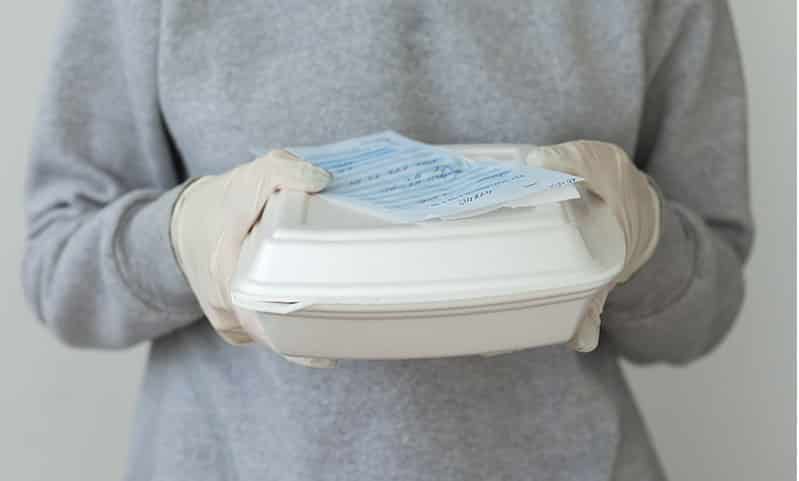As people go back to work following the Spring 2020 COVID-19 lockdowns, they are finding that work does not look the same.
Food issues are a good example of these changes.
Significantly, however, the new normal does not allow employers to make decisions on the fly.
Many companies used to offer buffet-style meals and snacks to employees.
But shared food utensils are not very safe.
So, many employers are transitioning to boxed lunches, prepackaged snacks, and limited use coffee pots. Communal microwaves, refrigerators, and water coolers should also be rethought.
Furthermore, in many places, individualized dining has replaced community breakfasts and lunches.
Employer Safety Responsibilities
Meals and snacks are a big part of every workday. But workers only spend a fraction of their time in the cafeteria or breakroom. They are usually in the office itself.
In general, landowners have a duty of reasonable care to ensure an invitee’s safety.
Landowners include employers, even if the employer technically rents space in the building.
The employer usually has exclusive control of the leased premises. Invitees are people who have permission to be on the land and whose presence benefits the landowner in some way.
Typically, employee safety usually involves various anti-discrimination laws, like the Civil Rights Act, Age Discrimination in Employment Act, Americans with Disabilities Act, and so on.
Because of the coronavirus outbreak, the federal government has rolled out some additional workplace safety standards, such as:
- Daily Employee Health Screenings: Employers need not test employees for coronavirus, unless perhaps they have reason to believe the person is infected. Rather, workplace health screenings include things like temperature checks and symptoms checks (i.e. chest tightness, coughing, sneezing, and other flu-like symptoms).
- Hazard Assessment: A hazard assessment is usually a one-time examination performed prior to reopening after a lockdown. The assessment should focus on surfaces and sanitation efforts. The coronavirus lives on surfaces for up to seventy-two hours. Other hazards include a poor ventilation system. The employer should keep this report on file, and the employer must address any noted hazards.
- Cloth Face Coverings: Many local governments have mask requirements. Some state governments have these rules as well. However, these mandates usually only require some kind of mask.
- Social Distancing: Desks and workstations should be spaced appropriately. If that’s not possible, plexiglass or other dividers should be installed. On a related note, employers should consider staggering start and end times, to avoid rushes to the door.
- Ventilation System: Most workplaces have the most economical available HVAC system. Such systems circulate warm and cool air, but they do little or nothing to combat infectious diseases. Employers should probably also install standalone air filters at various places.
Many of these requirements fly in the face of existing laws.
For example, it’s usually illegal to ask a worker if the worker is sick. It’s almost definitely illegal to ask about the nature of the worker’s illness.
But these are not normal times. Public health and safety during a pandemic takes precedence over individual privacy.
Can I Sue My Employer if I Get Sick?
Workers’ compensation applies to many occupational diseases.
But in New York and most other states, the workers’ compensation program excludes coverage for ordinary diseases, such as cold and flu.
This exclusion applies to healthcare workers and other employees at great risk of infection.
It’s debatable whether coronavirus qualifies as an “ordinary disease.”
Additionally, New York lawmakers are considering a half dozen measures which would extend workers’ compensation protection to New York workers, or at least to healthcare workers, firefighters, and other frontline employees.
Workers’ compensation provides no-fault insurance benefits which cover economic losses, such as medical bills and lost wages.
Pre-existing conditions are usually irrelevant.
That’s especially important in coronavirus claims. COVID-19 is almost harmless to some people and almost always deadly to other people, largely depending on age and overall health.
If there is evidence that the employer intentionally disregarded a known risk, additional compensation might be available.
A workplace which falls substantially short of the standards discussed above arguably presents such a risk.
This additional compensation usually includes money for pain and suffering, loss of enjoyment in life, emotional distress, and other noneconomic damages.
Coronavirus victims who were infected at work might have legal options. For a free consultation with an experienced personal injury attorney in New York, contact Napoli Shkolnik PLLC.
